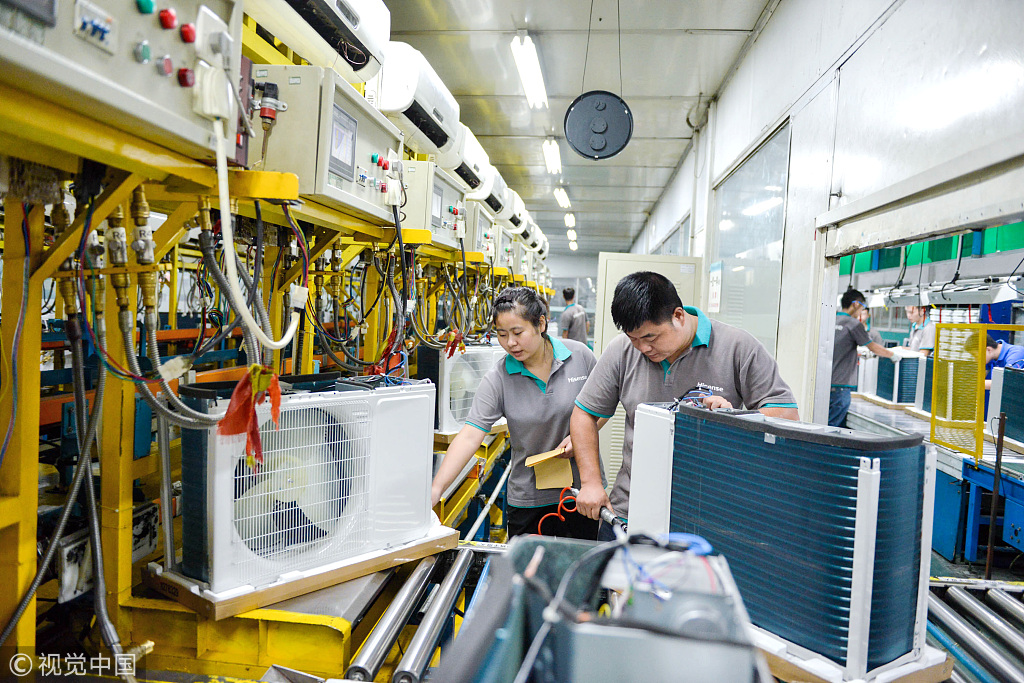External headwinds fail to stymie tech progress


Sinotruk is not alone. When Hisense Electric Co, another consumer electronics company in Shandong province, opened its plant in South Africa in 2013, local employees took buses or used car-pooling to get to work. Now, most of them drive their own cars, and sometimes experience difficulty in finding parking places.
Li Youbo, manager of the South African branch of Hisense, said, "Some of the cars are second-hand or older, but it still highlights the improved incomes and living standards."
Headquartered in Qingdao, a city in East China, Hisense has been expanding its business in South Africa since 2000, when it built a TV production line in Johannesburg. In 2013, it opened another plant in Atlantis, about 50 kilometers from Cape Town. Last year, Hisense produced 261,000 refrigerators and 389,000 televisions in South Africa.
Liu Xin, general manager of Hisense's international marketing department, said Hisense South Africa has hired 700 employees, accounting for more than 90 percent of the staff members in South Africa. Thirty-three of them are senior executives and managers.
Besides TVs and fridges, Hisense's South African plant produces freezers, mobile phones, air conditioners, washing machines and kitchen appliances, which have entered just over 5,000 shops owned by 18 chain stores across South Africa.
Li Daokui, an economist at Tsinghua University and former monetary policy committee member at the People's Bank of China, said US President Donald Trump appeared to rush into decisions to launch the series of tariff threats against China. "He is too anxious to reach a deal," he said.
The Chinese government should maintain "a balanced frame of mind", rather than be irritated by the White House's flip-flopping on trade, given that the two countries are unlikely to solve all their trade disputes in the next few months, Li said.
Zhang Yansheng, a researcher at the China Center for International Economic Exchanges, said solving Sino-US tensions will be a long and bumpy journey.
"By 2035, bilateral relations between China and the US will feature 'irrational confrontation'-meaning these relations will be sometimes be intensified and sometimes pacified," Zhang said. "Risk control and conflict management are of great importance for the two countries and the rest of the world."
Wan Zhe, chief economist at the International Cooperation Center at the National Development and Reform Commission, said China should continue to push ahead with economic reform and opening-up, and work with the rest of the world to support free trade and multilateralism.
Dong Yan, a senior researcher at the Chinese Academy of Social Sciences, said China will stick to its established agenda of reform and opening-up while firmly upholding the multilateral trading system.
Hu Yongqi and Sun Ruisheng contributed to this story.




































